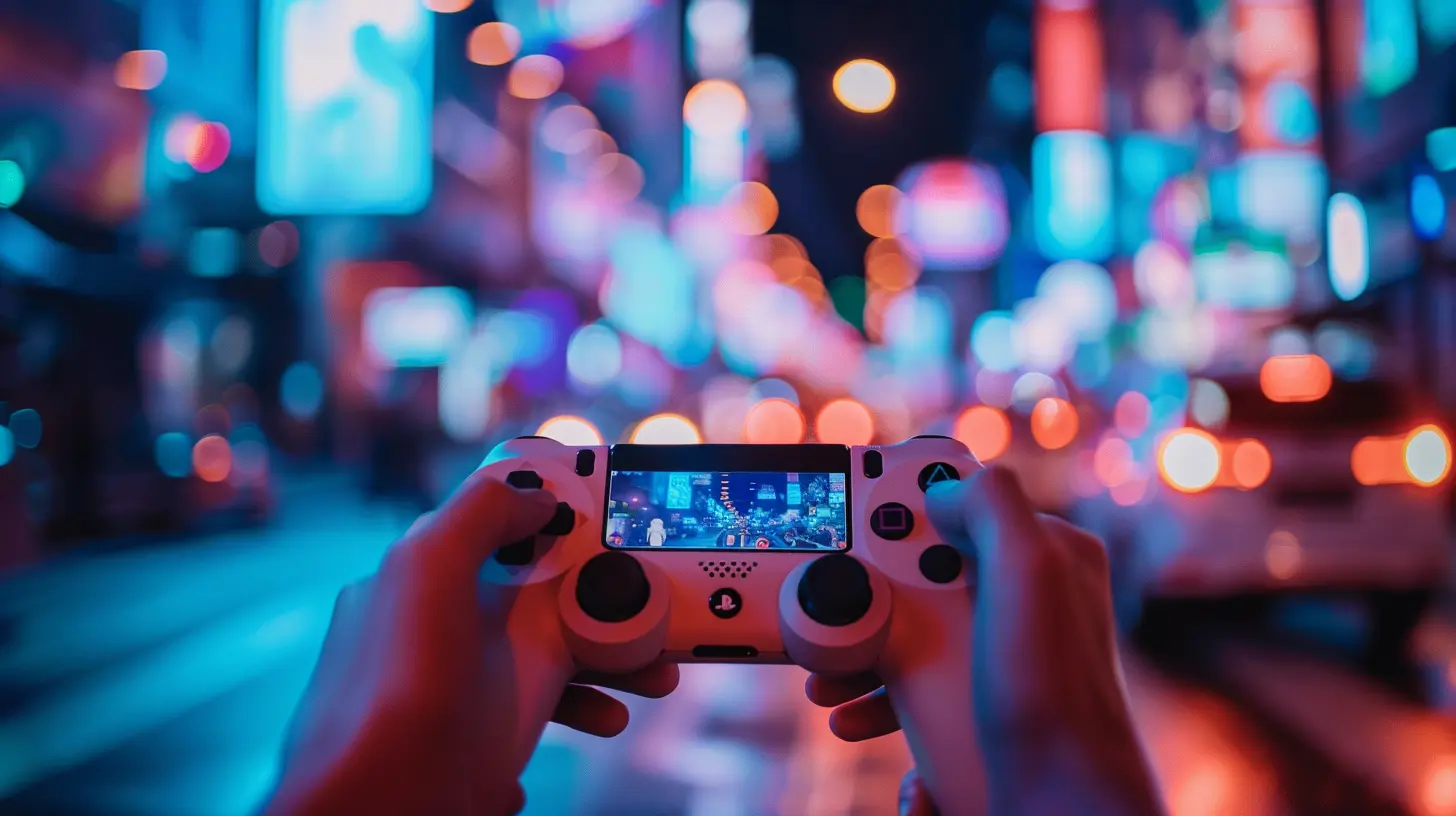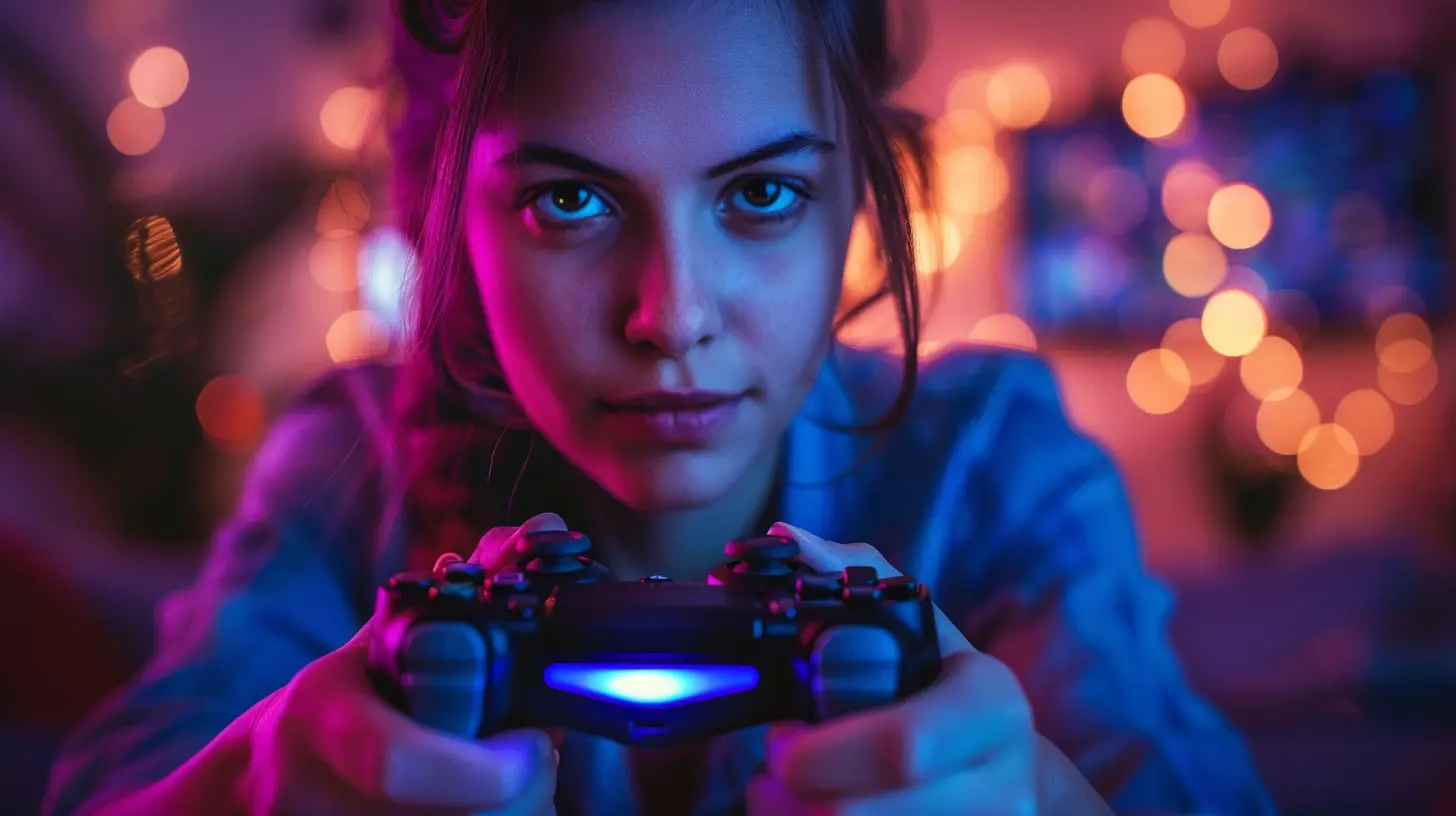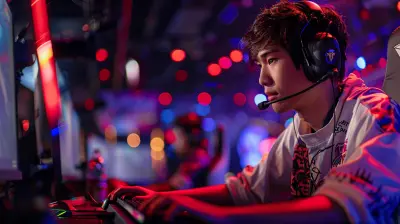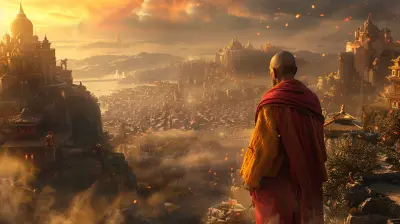How Online Games Are Changing the Way We Socialize
5 September 2025
Let’s be real for a second—how many of us have logged into a game “just for a quick match” and ended up chatting with strangers for hours? You’re not alone. Whether it’s teaming up in Fortnite, building worlds in Minecraft, or simply hanging out in VRChat, online games have become modern-day campfires where people from all over the globe gather, connect, and socialize. But how did we get here? And more importantly, how are online games reshaping the way we interact with others?
In this article, we’re going to dive into exactly that. From smashing stereotypes to building bonds stronger than most social media connections, online games are more than just entertainment—they’re social playgrounds.

A New Kind of Social Circle
Remember the days when meeting new people meant awkward small talk at events or hoping to bump into someone interesting at the coffee shop? Well, times have changed. Online games have carved out a new space for friendships to spark—and flourish.Think about it. You're dropped into a multiplayer world with shared goals, challenges, and communication. It’s a recipe for connection. Whether through voice chat, in-game messaging, or even emojis, you’re constantly interacting with others.
From “Strangers” to “Squad Goals”
There’s something magical about going from random teammates to late-night Discord buddies. Online games break the ice almost instantly. You’re given a shared mission, like surviving a zombie apocalypse or capturing a flag. Before you know it, you're shouting strategies to each other like seasoned pros.These shared experiences create emotional bonds. And once you’ve faced a boss fight together and survived with just 2 HP left, you’re not just teammates—you’re comrades.

Breaking Down Social Barriers
Online games don’t care if you're tall or short, rich or poor, introverted or extroverted. All that matters is your skill, your strategy, and your willingness to play fair (unless you're that one person who always rage quits—don’t be that guy).Diversity Without Bias
Gaming platforms unite people from wildly different backgrounds. It’s not uncommon to have a squad composed of players from five different countries—and honestly, that’s pretty amazing. These games create an equal playing field where you're judged by your actions, not appearances. This inclusivity makes them powerful tools for cross-cultural understanding.Safe Spaces for Self-Expression
For many, games offer something they can’t find in real life: a safe space. An online avatar can be anyone you want it to be. Shy in real life? No problem. In-game, you could be an outgoing warrior or a confident sniper. These virtual personas often help people express themselves more freely, especially those who struggle with social anxiety or identity.
Emotional Support in Unexpected Places
Here's something you might not expect: online game friends can become your emotional lifeline. It's not all fun and games all the time. Life gets messy. And sometimes, those random friends you made in-game are the first to notice when you’re not quite yourself.Real Connections in Virtual Worlds
Need to vent about a bad day? There's probably a friend online who's ready to listen while you both gather loot. The anonymity of online gaming can actually make it easier for people to open up. It strips away the pressure and fear of judgment that often comes with face-to-face conversations.This kind of emotional support has become even more important during times like the COVID-19 pandemic, when in-person socializing wasn’t an option. For many, gaming was (and still is) a lifeline.

Online Games vs. Social Media
Sure, social media platforms like Facebook, Instagram, and Twitter keep us connected—but let’s be honest, they’re often more about broadcasting than bonding. You post, people react. Not much back-and-forth.Interaction vs. Observation
Online games flip the script. You’re not just watching each other’s lives; you’re sharing real experiences in real time. Whether it's pulling off a clutch win in Apex Legends or farming resources in Stardew Valley, you're building something together.And because of this genuine interaction, the relationships formed in gaming can feel deeper and more authentic than those maintained purely through “likes” and comments.
The Rise of Virtual Hangouts
Gaming has evolved beyond missions and scores. Platforms like Roblox, Fortnite's Party Royale, and VRChat offer what could best be described as virtual hangout spots. No objectives, just vibes.Gaming as the New Coffee Shop
These spaces are basically digital social lounges. Instead of meeting a friend for coffee, you log into a game, explore a digital world, watch an in-game concert, or even attend a virtual birthday party. It's the 21st century’s version of “hanging out at the mall.”And thanks to increasingly sophisticated avatars and customization tools, your digital self can wear that fancy outfit you can’t afford IRL. Who said pixel style can’t be fashion-forward?
How Streaming Is Building Communities
Here’s another twist you’ve probably noticed: people aren’t just playing games anymore—they’re watching them. Platforms like Twitch, YouTube Gaming, and Kick have transformed gaming into spectator entertainment, and with that, entire communities have emerged.Streamers as Social Catalysts
Favorite streamers often feel like friends (even if they don’t know you exist). It's because they interact with their audience in real time, read your comments, respond to your messages, and create inside jokes with their followers. It’s interactive entertainment at its finest.Even better? Fans of the same streamer often connect with each other. They create Discord servers, host watch parties, and even organize real-life meetups. All stemming from a shared love of watching someone else play.
Teamwork Makes the Dream Work
Team-based games like Valorant, Overwatch, and Rocket League thrive on teamwork. In order to win, you need to communicate, strategize, and trust your teammates. It’s like being on a sports team, minus the bruises and early morning practices.Learning Social Skills Through Play
Believe it or not, gaming can teach you legit social skills. Things like conflict resolution (sorry for rage quitting, Kyle), collaboration, and leadership often come into play. It’s a sandbox for practicing real-world interactions in a low-stakes environment.And don’t underestimate the value of managing a clan or guild. Those are essentially mini-organizations, requiring scheduling, recruiting, and conflict management. Is gaming secretly making us better managers? Could be...
Challenges Still Exist
Okay, it’s not all sunshine and power-ups. Like any social space, online gaming has its downsides too. Toxicity, harassment, and exclusion can creep in. But just like in any other social environment, the gaming community is learning and evolving.Tackling Toxic Behavior
Many games now include tools to report abusive players, mute toxic teammates, and promote positive behavior. Some game developers are even incorporating AI to detect problematic behavior before it escalates. It’s a work in progress, but the community is aware and pushing for change.The Future of Social Gaming
So, what’s next? If the current trajectory continues, online games will become even more immersive and social. With technology like VR and AR, the line between "game world" and "real world" is getting blurrier by the day.Goodbye 2D, Hello Metaverse?
We’re already stepping into a new phase with platforms that resemble mini metaverses. Imagine attending a virtual wedding in Final Fantasy XIV, or having a team-building session in a Minecraft server. It’s happening now—and it’s only going to grow.As we blend more of our social lives into these digital spaces, it’s worth asking: will online games replace traditional social interaction or simply enhance it? Personally, I think it’s a bit of both.
Final Thoughts
Online games have quietly, but powerfully, shifted the way we socialize. They’ve become spaces where friendships are born, where people rally around shared experiences, and where deep conversations can take place under the cover of fantasy avatars and pixelated worlds.So the next time someone tells you you're “just playing a game,” smile and remember—you’re part of a global social revolution. And that’s pretty epic, don’t you think?
all images in this post were generated using AI tools
Category:
Online GamesAuthor:

Lucy Ross
Discussion
rate this article
1 comments
Maria Kirkpatrick
Online games reshape social interactions, blending virtual connections with real-world dynamics, yet risk deepening isolation for those disengaged from physical communities.
September 11, 2025 at 4:22 PM

Lucy Ross
Thank you for your insightful comment! It's true that while online games can foster connections, they also risk isolating individuals from real-world communities. Balancing both worlds is crucial for healthy social interactions.


